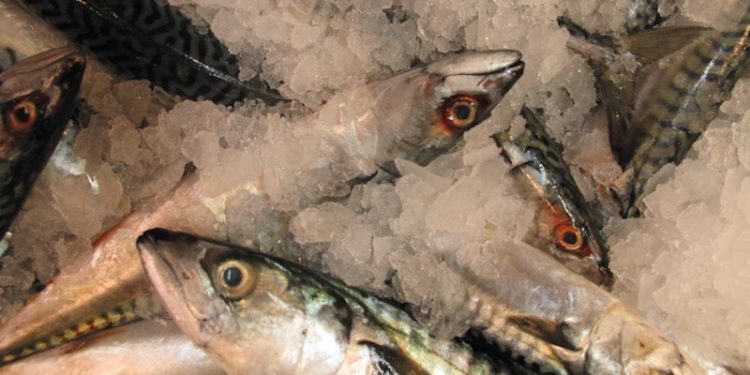A report by EDF focuses on changing patterns in fish populations and the implications for fisheries as well as for the way fisheries need to be managed in future. The North-East Atlantic is home to some of the world’s most environmentally sound fisheries, as well as being managed under some highly complex governance and management systems –all of which face challenges as climates and stocks change.
‘Thanks to recent climate and fisheries science we are able to document a clear risk to fisheries in the region as a result of climate-related impacts on commercial stocks,’ said Erin Priddle, UK Fisheries Manager for Environmental Defense Fund Europe.
The EDF report is the result of a recent fisheries and climate change workshop conducted by Environmental Defense Fund and hosted by ICES in Copenhagen.
‘This workshop provided an opportunity to discuss these risks, challenging us to think 10, 15, 20 years ahead,’ she said, pointing out that a recent ICES report found that 16 out of 23 commercial stocks have shifted outside their usual ICES regions.
As these shifts continue under on-going climate change, the report highlights how current, rigid management systems could be pushed to breaking points, with risks including a return to overfishing, regional conflict over resources and illegal discarding.
‘We want resilient, adaptive management that is able to respond to shifting stocks and a dynamic marine environment,’ commented Kristin Kleisner, a senior scientist specialising in fisheries and climate.
‘Otherwise, we risk a return to overfishing and illegal discarding because nations in the region may struggle to match catch to quota – as fish stocks enter or leave pre-defined management areas. We may see ‘quota rich, fish poor’ nations and vice versa, all across the region.’
While the warning signs identified in the workshop are clear, a consensus emerged that ‘we know enough to start making changes today, and we have tools at our fingertips to achieve positive outcomes’.
Among those tools is an emerging shift towards an ecosystem-based approach with simultaneous management of multiple, interacting stocks.
‘As climate change takes hold, we expect major changes in fish and fisheries distributions,’ explained Mark Dicky-Collas, the Ecosystem Approach Coordinator at ICES.
‘The obligation to manage fisheries using the ecosystem approach requires an adaptive response to these changes to ensure the sustainable exploitation of our fish stocks, conservation of our seas and the wellbeing of our fishers. Status quo management will not be able to solve upcoming challenges,’ he warned.
The report also notes challenges faced by regional fisheries bodies such as NEAFC, which will need to evolve and adapt to keep pace with the impacts of a changing climate.
A second report commissioned by EDF documents how other fisheries have tackled changes in stock distribution and allocation with possible paths that the North East Atlantic might consider. Potential reforms, along with improved conflict resolution methods, will help the region thrive despite the challenges brought on by climate change.
‘The foundational knowledge and tools are already to hand – but European nations need to act now to adopt climate-proofing policies for their fisheries. This is about securing our economically and ecologically important fisheries for future generations,’ Erin Priddle said.









